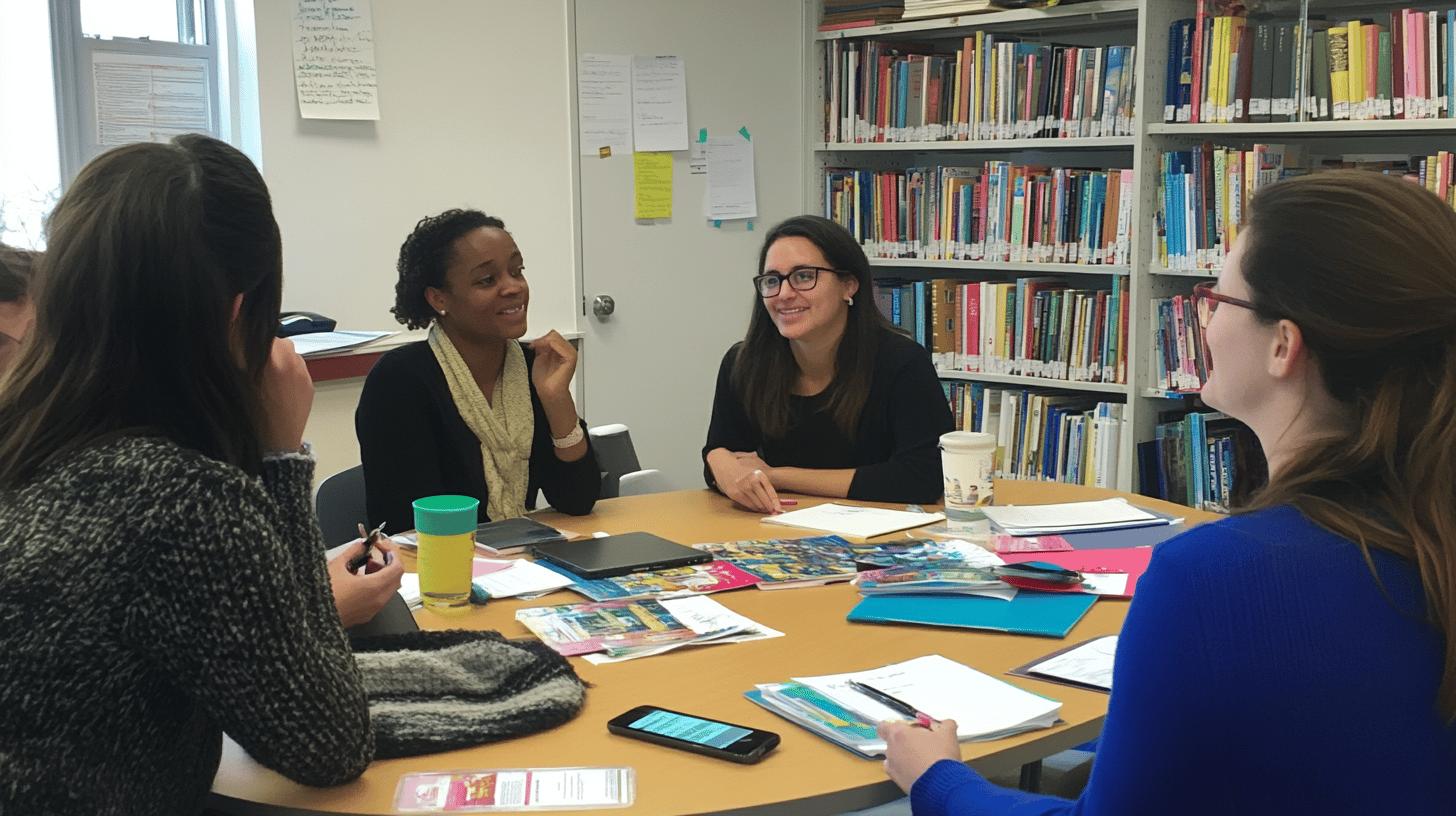Embarking on the journey of mastering community strategy is an invitation to cultivate authentic connections. At the heart of this endeavor lies the role of a community strategist—an architect of vibrant online and offline spaces.
The community strategist is tasked with creating strategies that not only foster growth and engagement but also breathe life into shared interactions. In a world driven by digital interconnections, platforms like Journey empower strategists to build and sustain genuine communities. Learning to harness these tools and tailor innovative approaches can transform community landscapes and enrich human experiences.
.png)
A community strategist is a seasoned professional tasked with developing and executing robust strategies to build, grow, and engage diverse online and offline communities. Their core function centers on aligning community initiatives with organizational goals while fostering authentic connections among individuals who share common passions and interests.
Key duties of a community strategist include strategic consulting to guide community development, launching tailored community initiatives that resonate with the target audience, and creating effective onboarding processes to ensure new members integrate smoothly. For example, strategists design personalized welcome sequences and curate content that encourages participation and nurtures a sense of belonging. They also continuously monitor community health metrics to refine engagement tactics and retain active membership.
Platforms like Journey play a crucial role in enabling community strategists to build authentic, vibrant communities. Journey’s intuitive customization tools empower strategists to craft unique community identities that reflect their members’ values. Features such as personalized onboarding sequences, AI-powered moderation, and rich engagement tools foster meaningful interactions and continuous participation. By leveraging Journey’s seamless integration of content management, group chats, and progress tracking, community strategists can sustain long-term growth and nurture genuine connections within their communities.

A community strategist plays a crucial role in shaping the long-term vision and success of vibrant communities. Their work centers on aligning community goals with organizational objectives while fostering meaningful interactions among like-minded individuals. This role requires a seasoned understanding of diverse audience needs and an ability to implement robust strategies that encourage participation and sustained growth.
Central to the community strategist’s duties is researching target audiences to tailor initiatives effectively and continuously monitoring key performance indicators (KPIs) such as growth, engagement, and conversion rates. They also lead strategic consulting efforts and launch community programs designed to enrich member experiences. Collaboration with external organizations often enhances their skills and broadens the community's reach.
Key responsibilities of a community strategist include:
By utilizing Journey’s integrated event management and analytics features, community strategists can seamlessly organize meetups and monitor community health. This empowers them to make informed decisions that nurture a safe, trustworthy, and engaging environment where members feel valued and inspired to contribute continuously.

Strong communication stands as the backbone of effective community strategy. A community strategist must articulate ideas clearly, facilitate inclusive discussions, and foster connections among diverse individuals. Strategic planning skills enable the strategist to design initiatives that align with long-term goals and adapt to evolving community needs. Analytical capabilities are crucial for interpreting engagement data, identifying trends, and refining strategies based on measurable outcomes. Additionally, a deep understanding of community dynamics and technology helps strategists leverage digital tools and craft environments that encourage meaningful participation.
Experience within communities often holds more weight than traditional business credentials. Practical engagement teaches strategists how to nurture belonging, encourage contributions, and sustain vibrant interactions organically. Continuous learning through professional development deepens this expertise, enabling strategists to stay current with evolving best practices. Education focused on community-specific challenges, such as managing diverse member roles or moderating content effectively, equips strategists to handle complex environments confidently.
Recommended training programs provide valuable resources and structured learning paths for aspiring and seasoned strategists alike. Examples include specialized workshops on community engagement frameworks, online courses covering digital platform management, and certification programs that emphasize strategic communication and performance analysis. These opportunities foster growth and sharpen the skills essential for success in the community strategist role.

Creating a fulfilling community strategy hinges on fostering authentic connections and continuous engagement among like-minded individuals. Successful community strategies prioritize comprehensive onboarding processes that welcome new members and guide them to participate actively. These strategies rely on proven frameworks like the Community Engagement Framework™ and detailed case studies to shape long-term growth plans. A seasoned community strategist understands the impact of measuring engagement metrics such as reach, retention, and conversion to optimize community health continuously.
Implementing effective community engagement techniques is central to building vibrant networks. These techniques focus on enhancing communication, nurturing belonging, and encouraging meaningful contributions. The ability to blend robust strategies with dynamic tools ensures communities remain safe, trustworthy, and engaging environments. Continuous improvement and adaptation to community needs help retain active members and enrich their overall experience.
Actionable steps to boost community engagement include:
Journey supports these efforts with integrated tools that streamline communication and engagement. Its customizable onboarding workflows, AI-powered moderation, and rich community feeds create a seamless environment for members to share ideas and resources. Group chats and direct messaging enable focused interactions, while the AI Sidekick offers personalized recommendations and automates routine tasks. Together, these features empower community strategists to nurture genuine connections and sustain vibrant, growing networks organically.

Community strategists often follow a rewarding career path that begins with roles such as Community Manager and advances toward leadership positions like Director of Community or Chief Community Officer. This progression reflects growing responsibility for shaping organizational culture and guiding diverse, vibrant communities toward long-term success. Seasoned strategists become invaluable assets by aligning community initiatives with wider business goals, fostering authentic connections, and cultivating environments where members thrive.
Compensation for community strategists typically correlates with their demonstrated impact on community growth, engagement, and retention. Organizations increasingly rely on clear KPIs and case studies to assess a strategist’s effectiveness, linking pay to measurable outcomes such as member participation rates, content reach, and conversion metrics. This performance-driven approach underscores the critical role that strategists play in driving both community vitality and organizational value through robust, data-informed strategies. Modern tools like the Journey app significantly enhance career prospects for community strategists by serving as a dynamic platform for building genuine connections and expanding professional networks. Journey’s rich features—such as customizable member profiles, event management, and AI-powered insights—empower strategists to showcase their expertise and foster meaningful interactions. By engaging with a like-minded community on Journey, strategists gain access to opportunities for collaboration, learning, and visibility, which can open doors to new roles and professional growth within the evolving landscape of community leadership.

Seasoned community strategists recognize that innovative frameworks are essential for fostering vibrant, engaged communities. Models like the Community Maturity Model™ offer a structured path to evaluate and elevate a community’s development stage, ensuring strategies align with long-term growth goals. Similarly, the Community Engagement Framework™ guides strategists in crafting tailored engagement techniques that resonate with diverse member needs. These frameworks emphasize data-driven decision-making, enabling strategists to continuously refine their approach based on granular insights into member participation and satisfaction. Integrating such methodologies helps communities evolve organically while maintaining a safe, trustworthy environment that encourages meaningful contributions.
Leveraging advanced digital tools is crucial for executing these best practices effectively. Platforms like Journey stand out by blending robust community management features with AI-powered insights that foster authenticity and sustained interaction. Journey’s integrated analytics dashboard provides real-time data on member activity, engagement rates, and content performance, empowering strategists to make informed, timely decisions. Its seamless content scheduler and engagement tracker facilitate consistent communication and vibrant discussions, while the Community ROI Calculator helps quantify the impact of initiatives. Together, these tools create a dynamic hub where community owners can organize, monitor, and enhance their efforts with ease and precision.
Journey’s AI Sidekick further enhances community strategy by automating moderation and curating personalized content recommendations, freeing strategists to focus on fostering genuine connections. Its customizable onboarding sequences and member profiles encourage rich interaction, helping individuals showcase their interests and contributions. With built-in event management and seamless mobile access, Journey supports continuous engagement and growth, making it an indispensable tool for community strategists dedicated to cultivating fulfilling, purpose-driven networks.

A community strategist’s role centers on long-term planning and measurable outcomes that align with an organization’s vision. They develop robust, data-driven strategies to foster vibrant, growing communities, focusing on high-level goals and continuous improvement. In contrast, a community manager handles the day-to-day operations, managing member interactions, moderating content, and maintaining a well-organized, safe environment. While both roles contribute to community health, the strategist’s work is more focused on guiding overall direction, whereas the manager ensures smooth daily engagement. Understanding these distinctions clarifies how each role caters to different aspects of community involvement. Community strategists leverage granular data to optimize growth and engagement, while community managers implement those strategies through direct communication and support. Platforms like Journey enhance this dynamic by providing community strategists with AI-powered insights and tools that streamline strategic planning, while community managers benefit from features that enable seamless moderation and member interaction.
Key differences between community strategists and community managers include:
In summary, the role of a community strategist is integral to building and nurturing vibrant communities. Emphasizing both strategic foresight and measurable engagement, community strategists contribute significantly to the long-term growth of communities. They achieve this by crafting tailored strategies that address unique community needs, ensuring authentic connections and successful outreach initiatives.
In pursuing this dynamic role, individuals should look at both traditional skills, like strategic planning and communication, and newer, tech-driven proficiencies. Digital tools like the Journey app play a pivotal role in this process. They streamline community events and measure engagement metrics, ultimately supporting strategists in delivering impactful results.
Aspiring community strategists benefit from exploring innovative tools and educational resources that enhance their skill sets. This ensures they stay ahead in a field marked by constant change and opportunity. More than just a career, community strategy shapes the way we connect, collaborate, and grow together. By embracing this role, strategists foster inclusive spaces that bring shared goals to fruition.
A community strategist develops and implements strategies to build and engage communities. Their focus is on long-term planning, consulting, and launching specific initiatives to encourage community growth and interaction.
Responsibilities include strategic consulting, performance analysis, and launching community initiatives. Strategists research target audiences, monitor growth and engagement, and sometimes coordinate with external organizations for skill enhancement.
A strategist identifies goals, analyzes trends, and formulates plans to achieve objectives. They focus on data-driven decisions and innovative frameworks to ensure strategic success in their respective industries.
Community strategy involves comprehensive plans for nurturing and expanding a community. It includes effective onboarding, engagement metrics, and the use of frameworks like the Community Engagement Framework™ to drive purposeful interactions.
While a degree in business, marketing, or communications is helpful, practical experience in strategic planning and community engagement often takes precedence for strategists.
Salaries vary based on experience and impact on community metrics, with roles progressing from Community Manager to Director or Chief Community Officer. Networking tools like the Journey app can enhance career growth and opportunities.